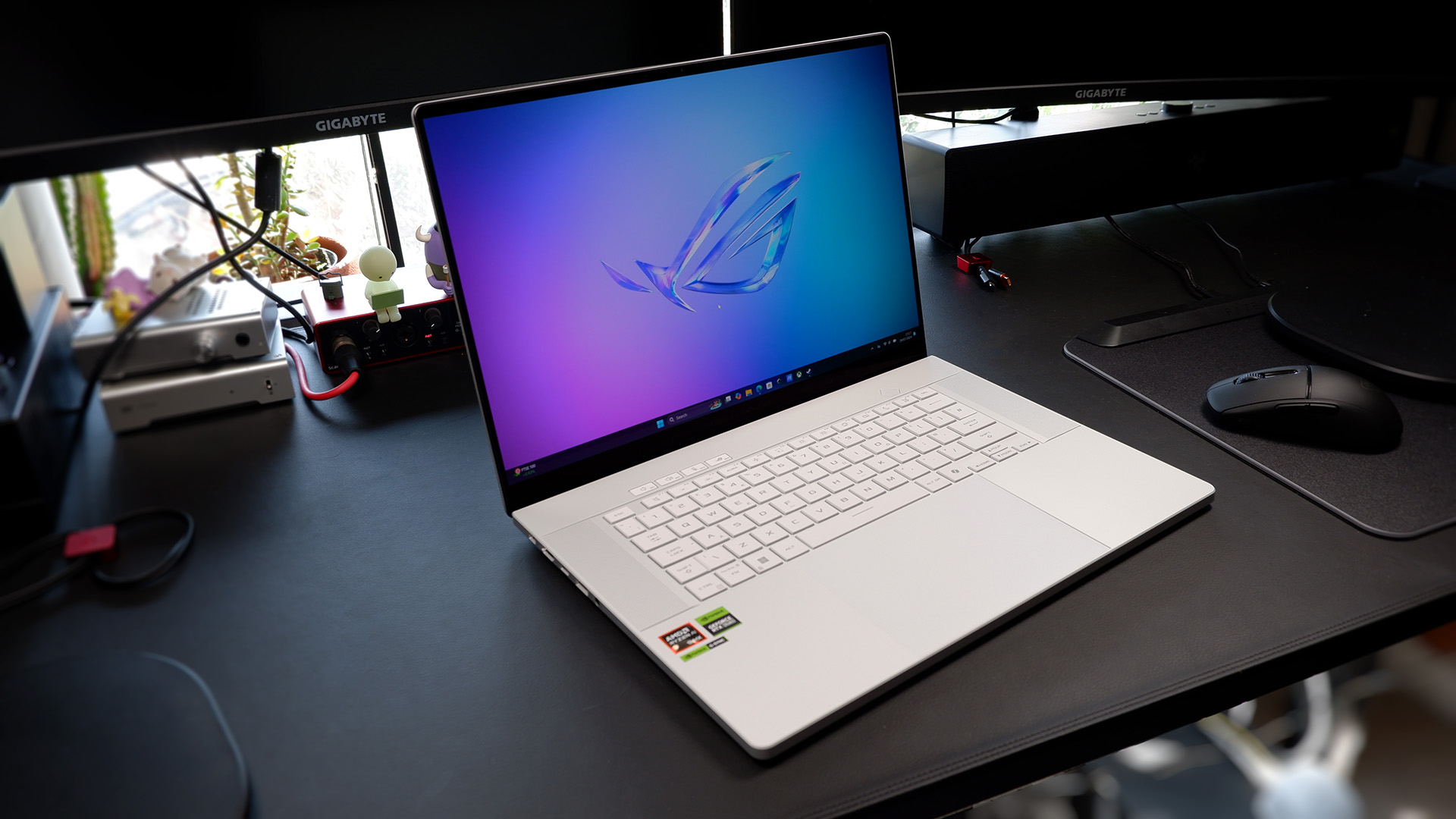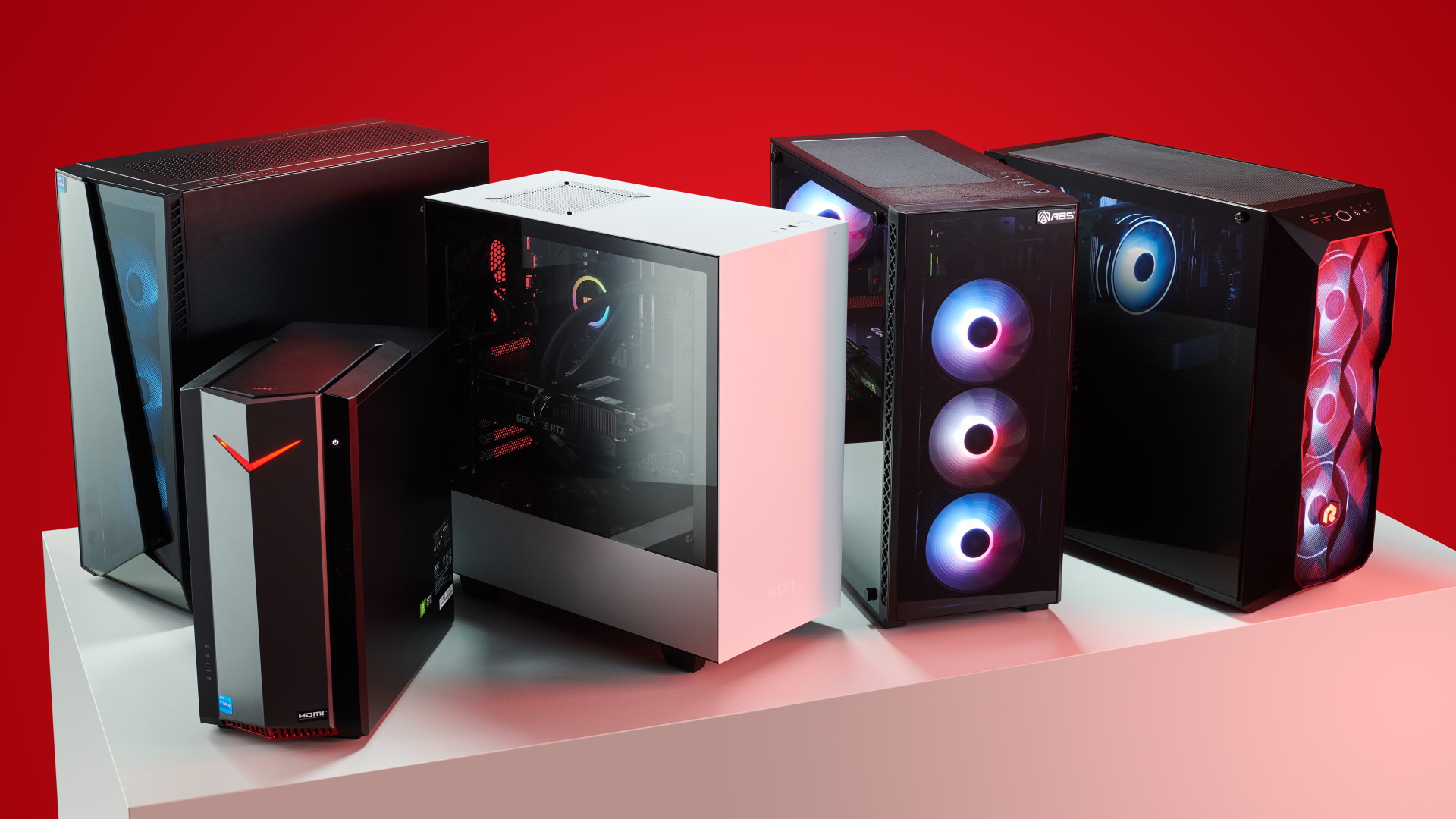Just in case you've forgotten all about them, AMD posts a less-than-convincing argument as to why AI PCs are better than any other type of PC
NPUs are the key, apparently, but don't ask about what doors they unlock.

The most commonly used tech phrase in the PC industry last year was 'AI PC' and, according to Intel at least, we were promised that such computers would "save people hours weekly through built-in artificial intelligence." So far the interest in AI PCs has been somewhat muted so AMD has decided that the best way to solve this is to explain exactly why AI PCs are better than non-AI PCs.
It's done this via a simple post on X, highlighting what an AMD AI PC can do better than a common-or-garden PC: "Handle AI tasks more efficiently with the world's most powerful built-in Neural Processing Unit (NPU), which supports the CPU and GPU for faster and smarter everyday use." On the other hand, non-AI PCs "can run AI tasks, but lack[s] an integrated NPU. AI runs on the CPU and GPU, but with less efficiency for multitasking."
Trivia time! 💡 What is the difference between an AMD AI PC and a non-AI PC? Test your knowledge below. pic.twitter.com/rGjf4OhpdCFebruary 7, 2025
Well, there you have it. Surely that's all the convincing anyone would need to go out and buy a spangly new AI PC with an NPU-equipped AMD Ryzen processor, right? AMD clearly doesn't think anyone actually needs to know any kind of specifics about the 'faster and smarter everyday use' bit because we all want our PCs to be faster and smarter. Every day.
The CPU in my main PC has an NPU (it's an Intel one) but as of yet, it's not been used for anything other than running a single benchmark to see it being used. Last year, I sat through a press briefing from one big system vendor in which it spent a good deal of time explaining why AI and an NPU were going to make things so much better.
I know how an NPU can be used but I'm still totally none the wiser as to what real, tangible benefit they bring to the PC industry as a whole. Let me clarify: With an NPU, one can run a small AI algorithm locally, without having to send lots of data to a distant cloud server, which means you retain far more privacy over your details and content that are being AI'd. Summarising your notes, for example, or improving your CV—that kind of thing.
But as AMD points out, your PC can do that without an NPU. It just uses the CPU or GPU to do it instead. Ah, but that's less efficient, you might say (or at least, AMD does). How much less efficient is it? Is it slower, a lot slower; does it involve a lot more power, draining your laptop's battery faster or using up more electricity from an outlet?
Without specifics, in the form of real-world examples being showcased in front of you, I can't imagine anyone will be nodding sagely at AMD's words and being converted into a champion of the AI PC. To be blunt, it's such a weak attempt at promoting AI PCs, that AMD has potentially done more damage than good.
The biggest gaming news, reviews and hardware deals
Keep up to date with the most important stories and the best deals, as picked by the PC Gamer team.
While X isn't well-known for inviting reasoned and well-balanced comments these days, the replies to AMD's post are not in the least bit surprising. "Scam," writes one user, whereas another expounds more with "I'm good with the non-AI PC. I can't really think of anything AI does which would benefit me as an actual creator." Only one reply was positive, though there was not a great deal there at the time of writing.

Best gaming PC: The top pre-built machines.
Best gaming laptop: Great devices for mobile gaming.
To be fair to AMD, though, I don't think there's any reasoned argument that would make a tech-savvy buyer deliberately seek out an AI PC, even if they're a fan of generative AI or the like. The reason is that such users are already using their non-AI PCs to do all of this, either via the cloud or locally via the GPU. An NPU can be used to handle a RAG (retrieval-augmented generation) algorithm, to improve the results from a locally-run LLM but I've not seen any general-use software do this yet.
AMD's latest laptop processors are fantastic chips, and any one of those paired with an Nvidia RTX GPU will make for a potent computer capable of blasting through AI workloads. If your portable PC is on its last legs, then by all means, grab an AMD 'AI PC' and enjoy a blisteringly quick computer, that's equally capable of gaming and content creation. The fact that it will sport an NPU doesn't really add to that, though at least it doesn't detract from it.
Cutting-edge technology always needs a 'killer app' to make it really take off but we've yet to see that for the little NPU. Until then, it looks like we'll just have to put up with more half-hearted marketing exercises that will leave us all still wondering the same thing: What use is AI to me?

Nick, gaming, and computers all first met in 1981, with the love affair starting on a Sinclair ZX81 in kit form and a book on ZX Basic. He ended up becoming a physics and IT teacher, but by the late 1990s decided it was time to cut his teeth writing for a long defunct UK tech site. He went on to do the same at Madonion, helping to write the help files for 3DMark and PCMark. After a short stint working at Beyond3D.com, Nick joined Futuremark (MadOnion rebranded) full-time, as editor-in-chief for its gaming and hardware section, YouGamers. After the site shutdown, he became an engineering and computing lecturer for many years, but missed the writing bug. Cue four years at TechSpot.com and over 100 long articles on anything and everything. He freely admits to being far too obsessed with GPUs and open world grindy RPGs, but who isn't these days?

